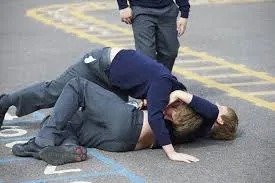
There is a popular saying which states that 'order is the first law in heaven'. It is also the first law in a good school, for without it, life cannot achieve its full purpose. In the presence of a disorderly class, the teacher loses inspiration or enthusiasm and spends so much time labouring to obtain the attention of his/her students. Consequently, he /she does very little, if at all any effective teaching holds. On the other hand, where discipline abounds, it is easy to secure order with ease,. A book of nature cannot therefore be complete without a chapter on school discipline
This is because it is primarily intended for practicing and student teachers in particular. Discipline in a classroom situation, is the ability to guide and control the class towards the attainment of predetermined objectives of education, while Indiscipline on the other hand entails a situation whereby energy and impulses are uncontrolled by moral principles or external authority.
It is therefore imperative that both the head teacher and the classroom teacher be well grounded in the theory, concept and practice of discipline.
THE CONCEPT OF DISCIPLINE
The definition of discipline is replete as much as they are many writers. This implies that the word 'discipline' can assume different meanings depending on the context in which it is used.
Dittimiya (1995) stated that school discipline is he business of enforcing school rules that facilitate learning and minimize disruption. An effective teacher should involve himselfto n the bit by bit, time-consuming task of helping children to see the sense in acting I a certain positive way. Discipline arises from the need to bring about a balance between what individual wants of others and restrictions demanded by the society in which we live. (Efanga, 2013).
THE CONCEPT OF INDISCIPLINE
Indiscipline cannoyes acts by individuals or institutions within a social group which are not conducive to the achievements of societal or organizational goals. Thus, a school head who embezzles funds meant for financing programmes in his school is not disciplined.so also is a male teacher who seduces a female student whom he is expected to be in loco parentis.
To this end, Indiscipline in a school may be defined as the unwillingness of students and staff to respect authority, obey school rules and regulations, and maintain a high standard of moral and attitudinal behavior conducive to the teaching-learning process as essentials to the smooth running of the school.
Types Of Indiscipline
- Anti-social Behaviour: this kind of Indiscipline includes among others: destruction of public properi and utility, rioting, hooliganism, stealing and bullying

- Deliberate Acts of Defiance: defiant acts of discipline are usually directed against constituted school authority and established rules. Such as : refusal to wear school uniform, sexual immortality, going out of bounds without permission, smoking, drinking and drugs taking.
Negligence Of Duty and Responsibilities: This type of Indiscipline includes carelessness in handling school and personal equipment and facilities, lateness to school, classes and assemblies; refusal to carry out morning duties and other school assignments; truancy in class , school attendance and so on.

FACTORS WHICH PROMOTE DISCIPLINE IN SCHOOLS
Discipline in schools is not about students alone, but include teachers school administrators. The actions/Inactions of school administrators and teachers individually or collectively, are among the factors that promote school discipline. This factors are:
I. Teacher's personality: there is no doubt that some teachers are endowed with the gift of an influential personality ( their presence command orderliness among students), which others are not that lucky. However the quality that may enhance teacher's character should serve as an impetus to students in order to attain advancement intellectually, morally and spiritually.
II. Good Teaching Method: No matter how intelligent and androit ba teacher may be, his subject, his choice of teaching method may improve or Mar the success of the lesson. Of the method is ineffective, the students will show signs of restlessness and will seek other escape routes to vent their energies.
III. Supervision: The sense of the duty of students is weak and they need the Teacher's vigilance to keep them constantly at their work. One good attribute of a teacher is to be able to see the whole class at a glance of order to detect students whose attention have started to stray.
Iv. The use of Punishment: Students sh be rewarded for doing what is right, which punishment should be administered on students' by a teacher whenever the contrary is the case. Some motives are:
- To avenge his injured feelings;
-To deter other students,
-To correct or educate the offenders and many more.
